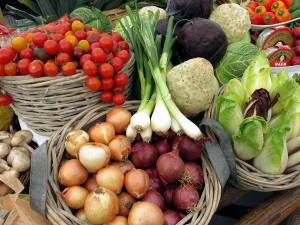The latest research into the impact of Ka Ora, Ka Ako – New Zealand’s free school lunch programme – shows a reduction in food insecurity for students and their families.
University of Auckland research fellow Pippa McKelvie-Sebileau and her research team conducted interviews with students, families and principals in four Hawke’s Bay schools for the study, which was recently published in Health Promotion International.
It is the first time the views of the most directly impacted have been recorded and presented by researchers.
Over 80% of families in the study were experiencing significant financial insecurity and 82% identified as Māori.
Student participants in the study reported the lunches had alleviated hunger in a way that was mana-enhancing for everyone because everyone ate the same meal together.
For parents, the lunches had a big impact on their grocery bill and increased financial security.
Parents also commented on their child’s change in food preferences, towards healthier options.
"My daughter asked me to buy a pumpkin at the supermarket, ‘Mum, can we get a pumpkin?’ ‘What for?’ ‘Pumpkin soup’,” one parent reported.
The research found internal delivery models, such as having on-site cooks, achieved greater benefits and uptake by students than those with external caterers, including working through initial hesitancy.
Schools with an external caterer reported lower uptake of the lunches, and students were more likely to have a negative perception of the food provided.
The principals said food insecurity was a huge problem, and student hunger had resulted in behavioural issues prior to the programme. They all wanted the programme to continue and were concerned about the potential impact of removing free lunches, having seen the benefits for their students and whānau.
McKelvie-Sebileau says the research shows improvements could be made in some cases such as involving school communities in the choice of lunch provider, increasing the attractiveness of the menus to limit food waste, and closing tuckshops at lunchtime.
"They could get stricter on what schools need to do to make it work, like they cannot run a healthy food programme and sell lasagne toppers at the tuckshop,” she says.
"The food environment needs to be protected, so the lunch programme is really valued and has the most impact."
Lisa Te Morenga, co-chair of the Health Coalition Aotearoa (HCA) an organisation dedicated to preventing harm from tobacco, alcohol and unhealthy food, says it is imperative the lunches are both high quality and taste good.
“A lot of critics worry about food waste, but when the food tastes good, kids will eat it.”
She says providers cooking the food on-site have a lot more flexibility to respond readily to kid’s preferences and reduce food waste.
The Government has agreed to fund the programme until the end of 2024 at its current size, 25% of schools in the most disadvantaged areas.



















